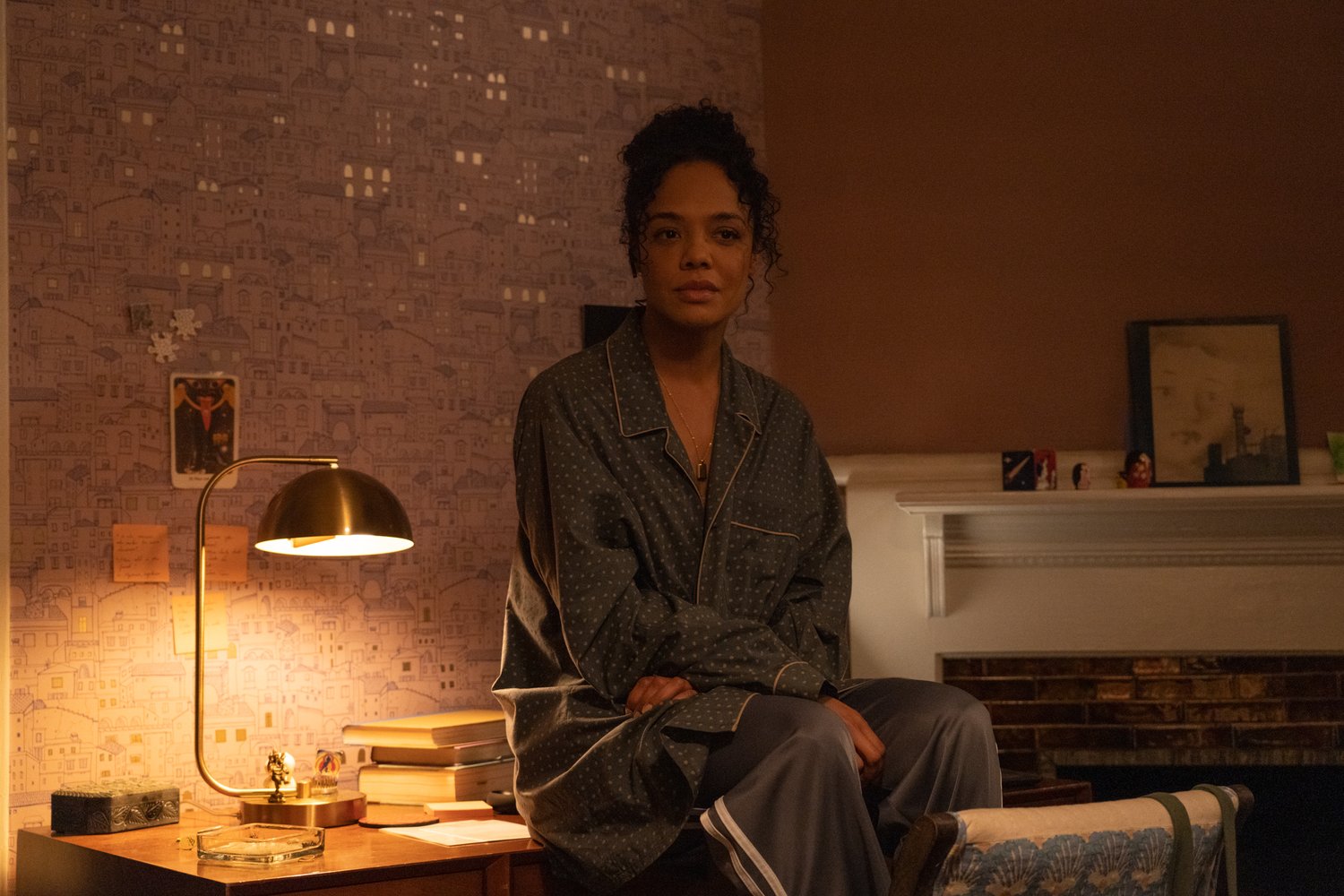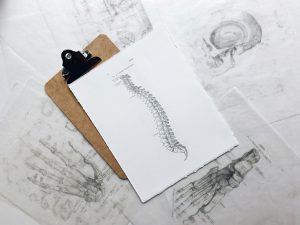Images courtesy of Vertical Entertainment
THE LISTENER— 4 STARS
If one were to research, the qualifications to be a crisis line counselor or dispatcher are fascinating. Citing one criteria example, the professional qualities of a “clear telephone voice” and “strong listening skills” are a given. The real measure comes from being “emotionally and psychologically ready for crisis counseling,” in addition to completing dozens of hours suicide prevention training. Needless to say, it takes quite a particular person to fill this role, especially as an unpaid volunteer. The Listener, directed by actor Steve Buscemi, presents a night in the life of a crisis counselor and has selected one of the most ideal actresses that could emulate that skill set perfectly.
Directing his fifth feature length film, Steve Buscemi had us at Tessa Thompson. That’s an immediate victory. Go ahead and close your eyes. Picture Tessa and hear her voice. If you’re hearing her approachable tone and timbre in softer roles like Passing or Sylvie’s Love before her heroic bellows in the Thor and Creed franchises, you’re the right kind of cinephile and have dialed in to the proper Tessa Thompson.
In The Listener, Thompson goes by the name of “Beth” as a volunteer on Help Anytime, a 24-hour crisis hotline. Beth lives with her demure cat in the smoggy and foggy hills of Los Angeles and prefers the busier night shift. After preparing some stovetop coffee, she settles in and we hear her first call from a former con named Michael (voiced by Logan Marshall-Green of Upgrade). He’s trying to acclimate himself returning to society and the workplace amid the anxieties caused by the masking protocols of the COVID-19 pandemic. He exudes both boldness and uncertainty in chatting with Beth.
LESSON #1: THE QUALIFICATIONS OF A TRUSTING VOICE– From this first phone call, we see Tessa Thompson’s Beth nailing the qualifications of not just a clear telephone voice, but a trusting one. She demonstrates the right ways to respond, from the varied inflections of acknowledgement ranging from a light “OK” to a more directly peaceful response or uplifting compliment. In between, the character validates the right ways to listen with comprehension as well. Beth’s wait time is on point, and she puts her callers immediately at ease with patience and preparedness, and this is just the first call of the night.
Throughout The Listener, Buscemi never leaves Beth’s home for the entirety of its 96 minutes, and Tessa Thompson is the only performer seen on screen. Everyone else, including Marshall-Green, is a voice actor from an ensemble that includes Alia Shawkat of Arrested Development, comedians Margaret Cho and Ricky Velez, Derek Cecil of House of Cards, Bosch and The Wire cast member Jamie Hector, Casey Wilson of Always Be My Maybe, Blu del Barrio of Star Trek: Discovery, and Thompson’s Passing director Rebecca Hall. With zero face-to-face contact, voice intonation and the faint ambient noises behind them (kudos to Beau is Afraid’s Ben Hsu crafting sound) are all Beth has for deducing threats.
Not every phone call to Beth in The Listener ends as positively and graciously as the first one from Michael, and even that one teetered for a bit. As her night continues, there’s a homeless girl possibly trapped by a would-be pimp, a tightly-wound incel looking to lash out, a stressed-out working actress, a married couple falling out of love, a War on Terror veteran avoiding the clinical Veteran Affairs services, a bipolar woman having an episode, and, highest of all, a woman on the verge of a suicide attempt. Don’t let the presence of so many comic personalities in the cast fool you. The jarring rawness is overflowing.
LESSON #2: THE HELPLESSNESS OF REMOTE HELP– The Listener’s narrative written by The Messenger Oscar nominee Alessandro Camon engineers unique mini-episodes that emphasize a degree of helplessness within these conversations fielded by counselors. Beth voices this fact when she tells a client the “hardest thing is when the caller hangs up.” There is a undoubtedly temporary nature to the events which create a wonder of success or failure afterwards. For example, on this observed night on the job in The Listener, only one of the callers ever returns for a second talk. Such a precarious state demands compartmentalization and personal stress management for the operator.
This is where Tessa Thompson shines in The Listener. By staying entirely on her point-of-view, the film rests on her body language and the methodical steps of stress relief before, during, and after as she must switch gears in between callers. Sketching is an observed outlet, but the stress ball and the dump button are not far away if the peril is too much. Akin to Joaquin Phoenix in Her, Thompson is extraordinary, playing off of dialogue read into her ear. It’s a challenge of cadence and response variation that not every actor can pull off convincingly.
Any shifts of pulse and suspense come from the drastic transitions between conservation topics, caller behavior, and small swerves of music from Aska Matsumiya of Bruised and After Yang. Rest assured, deft shooting and editing shifts break up any perceived lulls. Cinematographer Anka Malatynska (TV specialist from NCIS: Hawai’i) looms in Beth’s low-lit living space designed and dressed functionally by production designer Mboni Maumba (The Tuba Thieves). Malatynska smoothly switches from dolly shots and slow static zooms during moments of calmness to the occasional handheld close-up where spirits are shaken. Buscemi and editor Kate Williams (The Whole Truth) stitch all of this to make a single night fit into 90 wrought and compelling minutes.
LESSON #3: FINDING EMPATHY– The Listener’s semblance of single-setting stillness requires viewer patience matching that of the main character, but it also requires one even greater quality: empathy. Certain viewers– be it from disinterest, repulsion, boredom, or their own triggers– will not be able to weather or accept The Listener and its outcomes. Beth and those telephone counselors who do this job do not have that choice. They arrive with on-the-spot empathy and supportive presences. We must bring the same to the film.
True to movies’ magical power of racing our minds trying to picture unseen dangers from only sounds, we cannot help but imagine the darkest variants of the missing visuals emanating from the stories heard from the desperate and fragile personalities on the other end of Beth’s earpiece. The Listener’s type of premise has been harvested before for horror setups and Hitchcockian thrills. Steve Buscemi and Alessandro Camon understand that life is haunted and twisted enough not to require those exploitative tropes. The Listener exemplifies their restraint to tell something contemplative, powerful, and not preposterous.
LOGO DESIGNED BY MEENTS ILLUSTRATED (#1186)



